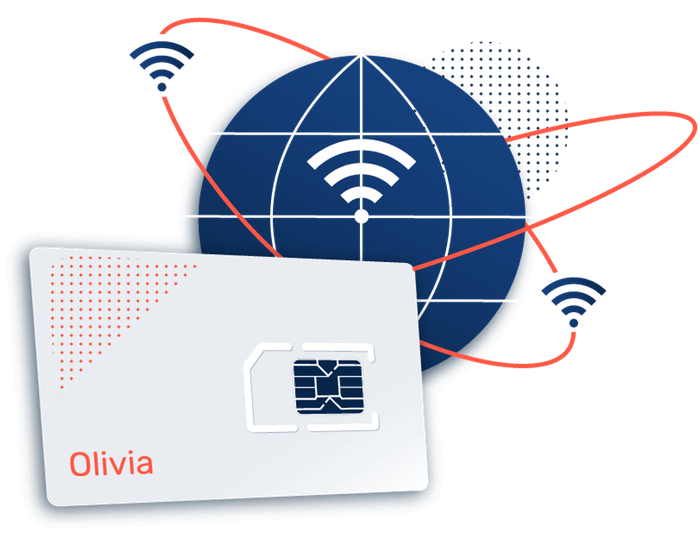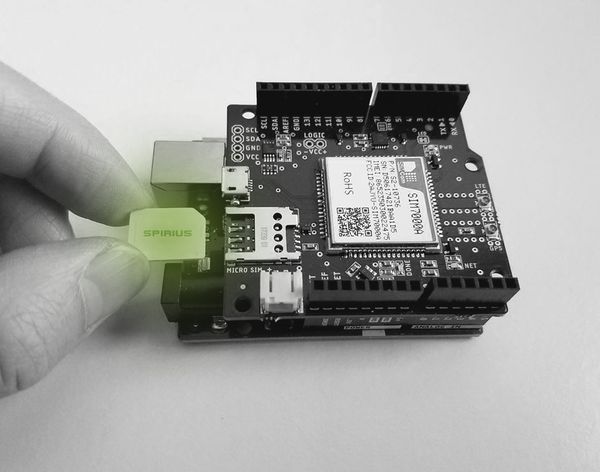Iot Global Sim Card IoT SIM Card
The function of SIM playing cards in IoT connectivity is becoming more and more important as the world advances in path of a more interconnected landscape. IoT, or the Internet of Things, refers to the huge network of devices that communicate with each other and exchange knowledge to enhance performance and efficiency. In this ecosystem, SIM cards function an important component, facilitating wireless communication between devices.
SIM cards provide the necessary identification that permits IoT gadgets to connect to mobile networks. The distinctive identification numbers programmed into these SIM cards enable devices to authenticate their connections with service providers. This is crucial as it helps stop unauthorized access and ensures that knowledge transfers happen securely.
copyright Iot Sim Card IoT SIM Card API global connectivity
Different types of SIM playing cards are available for IoT purposes. Traditional SIM cards, embedded SIMs (eSIM), and removable SIMs all serve different needs within the IoT area. Traditional SIM playing cards could be inserted into units needing connectivity, whereas eSIMs are embedded instantly into devices and are more adaptable to changes in service providers. The versatility of eSIM technology performs a significant function in various IoT functions.

IoT units are available in various shapes and sizes, from smart house appliances to industrial equipment. Each kind of gadget might have completely different connectivity wants relying on its objective. SIM cards can present numerous data plans tailored for particular use cases, optimizing communication primarily based on bandwidth necessities, knowledge usage, and other components. This flexibility is instrumental in enhancing the general performance of an IoT ecosystem.
copyright Iot Sim Card Simplify IoT SIM Card Management
Another facet of the SIM card's function in IoT connectivity is the power to track and manage units remotely. Mobile network operators provide platforms that enable users to observe their IoT devices in real-time. This capability is especially vital in industries similar to logistics and transportation, the place knowing the exact location of property can lead to better operational efficiency and cost financial savings.
As IoT gadgets proliferate, managing connectivity turns into more complex. Here, the position of SIM cards extends to enabling centralized administration options that assist administer a number of units simultaneously. This is particularly advantageous for enterprises operating massive fleets of linked gadgets, which may observe efficiency and connectivity extra effectively through a single management interface.
Iot Sim Card South Africa IoT M2M SIM Cards
A main concern in the Internet of Things is safety. With tens of millions of gadgets linked to the internet, ensuring the integrity and confidentiality of knowledge is paramount. SIM playing cards contribute to this safety structure by offering encryption capabilities that safeguard delicate information. The cryptographic keys embedded within SIM cards assist safe communications between units, making it difficult for unauthorized entities to intercept or manipulate knowledge exchanges.
Moreover, the position of SIM playing cards is evolving as know-how develops. The introduction of Narrowband IoT (NB-IoT) and Long Range Wide Area Networks (LoRaWAN) has opened new avenues for connectivity, particularly for low-power and long-range applications. SIM cards designed for these particular technologies enable devices to function efficiently over long distances whereas consuming minimal energy. This is very related for remote monitoring and control techniques, the place changing batteries may be expensive and difficult.
While SIM playing cards have made strides in enhancing IoT connectivity, they also face challenges. For instance, compatibility issues arise when integrating various recommended you read gadgets throughout completely different networks. The introduction of standards and regulations aimed toward harmonizing IoT services is an ongoing effort, but the tempo of innovation usually outstrips these measures. Iot Device With Sim Card. Adapting SIM playing cards to meet numerous necessities is important for ensuring a seamless experience in the burgeoning IoT panorama.
Iot Sim Card copyright Global IoT SIM Card LOT 100

The impression of 5G know-how can also be reshaping how SIM playing cards function inside IoT connectivity. With significantly improved speeds and lowered latency, 5G offers capabilities that redefine IoT purposes, ranging from smart cities to autonomous vehicles. SIM playing cards designed specifically for 5G networks shall be crucial in leveraging the complete potential of those next-generation capabilities.
In varied sectors, including agriculture, healthcare, and smart cities, the position of SIM cards becomes more and more crucial. In agriculture, for instance, sensors linked via SIM playing cards can monitor soil circumstances, enabling farmers to make informed decisions about irrigation and fertilization. Similarly, in healthcare, remote patient monitoring devices utilize SIM cards to transmit vital health information to healthcare providers, enhancing affected person care.
The rising reliance on cloud companies in IoT functions typically necessitates strong data switch solutions. SIM cards facilitate these connections, enabling gadgets to send and obtain information from cloud platforms successfully. This capability not solely enhances the performance of IoT options but in addition improves the flexibility to research data for better decision-making.
As connectivity evolves, the significance of SIM playing cards in sustaining a robust ecosystem can't be overstated. Their role in identifying, securing, and managing units is central to ensuring seamless communication throughout the IoT panorama. Whether it is via conventional SIM cards or newer technologies like eSIMs, their significance will only continue to develop in an increasingly connected world.
Iot Device With Sim Card Global IoT SIM Card Multi-Network M2M
The integration of artificial intelligence and machine studying into IoT options signifies yet another evolution in connectivity. SIM cards that may handle enhanced knowledge processing capabilities might be essential for the smart decision-making processes enabled by these technologies. Collectively, these developments will result in extra clever systems capable of adapting to altering situations autonomously.
In conclusion, the role of SIM cards in IoT connectivity is multifaceted and important for the expansion and sustainability of an interconnected world. By ensuring secure identification, facilitating remote management, and adapting to new technologies, they play a crucial half within the evolution of IoT functions across various sectors. As technology advances, the importance of SIM cards will only intensify, driving further innovations and improvements in connectivity strategies.

- SIM cards provide a safe and distinctive identifier for IoT gadgets, enabling trusted communication inside networks.
- They facilitate seamless connectivity in numerous environments, from city areas to distant areas, enhancing the reliability of IoT applications.
- With the advent of Embedded SIM (eSIM) know-how, IoT units can change carriers easily, enhancing community adaptability and decreasing downtime.
- SIM playing cards contribute to knowledge encryption, making certain that the data transmitted between gadgets and networks stays secure towards unauthorized access.
- They enable over-the-air updates, allowing manufacturers to push firmware upgrades directly to IoT devices without physical access.
- By integrating subscription management, SIM cards help in maintaining and monitoring data plans, optimizing costs for businesses deploying massive IoT networks.
- SIM playing cards improve system tracking capabilities, making them crucial for logistics and asset management in numerous industries.
- They support multi-network connectivity, which enhances redundancy and reduces the risk of communication failures in critical functions.
- The function of SIM playing cards in community slicing permits for tailor-made connectivity solutions, making certain that totally different IoT functions obtain the appropriate bandwidth and latency.
- SIM playing cards are pivotal in facilitating gadget provisioning and administration, streamlining the deployment course of for large-scale IoT implementations.undefinedWhat is a SIM card and why is it important for IoT?
Best IoT SIM Card IoT SIM card Affordable global connectivity
A SIM card is a small chip that allows gadgets to connect to cell networks. In IoT, it supplies safe communication and allows devices to send and obtain knowledge, making them accessible and manageable remotely.
How do SIM cards enhance information safety in IoT devices?
SIM cards utilize encryption and authentication protocols that guarantee secure communication between the device and the community, defending towards unauthorized access and data breaches.
What forms of SIM playing cards are used in IoT Extra resources applications?
Nb Iot Sim Card IoT M2M SIM Cards Data Plans
IoT purposes often use specialized SIM playing cards, similar to M2M SIMs and eSIMs, designed for numerous environments and offering enhanced sturdiness, distant administration, and adaptability in connectivity options.
Can IoT devices function with out SIM cards?
Iot Gsm Sim Card What is an IoT SIM Card?
While it's possible for IoT gadgets to attach by way of Wi-Fi or different wi-fi technologies, SIM cards are crucial for cell connectivity and are important for gadgets that require in depth protection and roaming capabilities.
What is the difference between traditional SIMs and eSIMs in IoT?
Traditional SIM playing cards are physical devices inserted into units, while eSIMs are embedded chips that may be programmed remotely, providing higher flexibility for device producers in managing connectivity without hardware modifications.
How do SIM cards contribute to price management in IoT deployments?
Iot Machine To Machine Sim Card SIM Card IoT Projects Global Deployments
SIM playing cards enable optimal connectivity options, permitting businesses to decide out appropriate information plans and manage data utilization efficiently, serving to to reduce operational prices related to knowledge transmission (Cheapest Iot Sim Card).
What are the challenges associated with utilizing SIM cards in IoT?
Challenges can include managing multiple SIM playing cards for numerous gadgets, guaranteeing compatibility, addressing network protection points, and coping with potential fraud or safety vulnerabilities in mobile communication.
How can businesses choose the best SIM card for his or her IoT needs?
Iot Sim Card IoT SIM Card eSIM Global Connectivity
Selecting the right SIM entails considering elements like community protection, data usage, device compatibility, long-term scalability, and security measures. Consulting with service suppliers may help align choices with operational needs.
What position do SIM playing cards play in future IoT innovations?
SIM playing cards are important for enabling next-generation IoT improvements, as they facilitate seamless connectivity, drive automation, and improve device management capabilities, thus supporting more advanced applications like smart cities and remote healthcare.